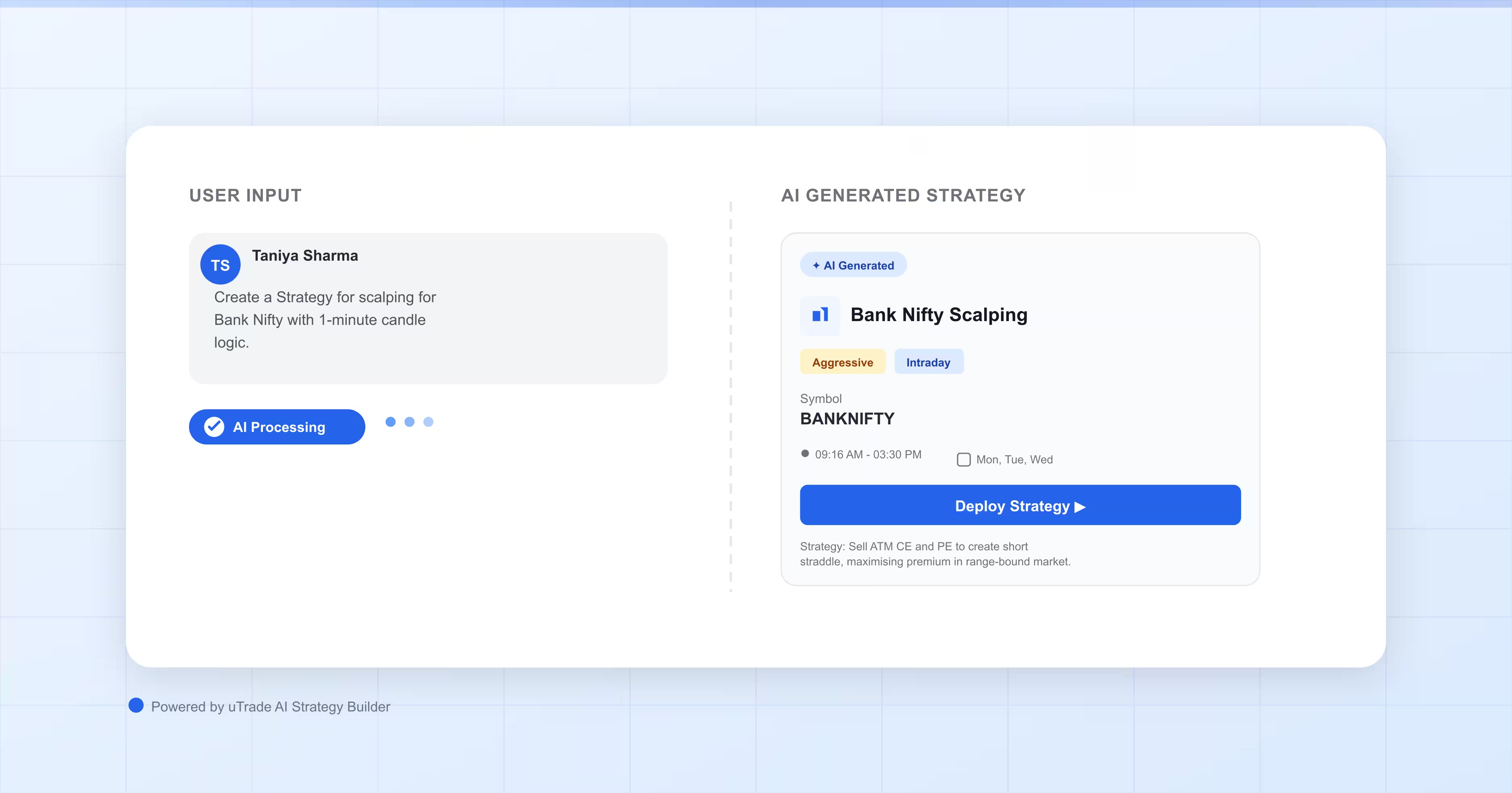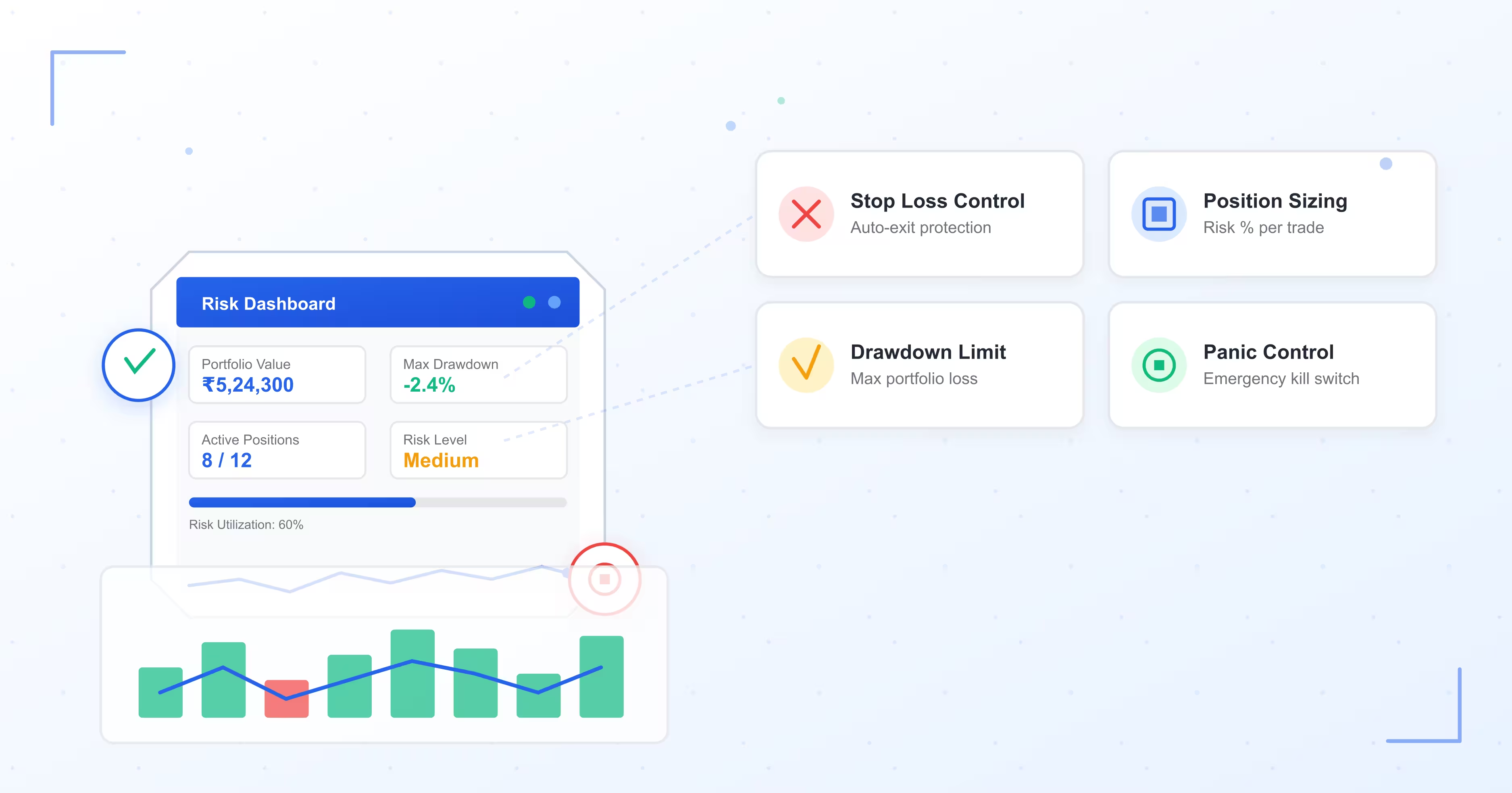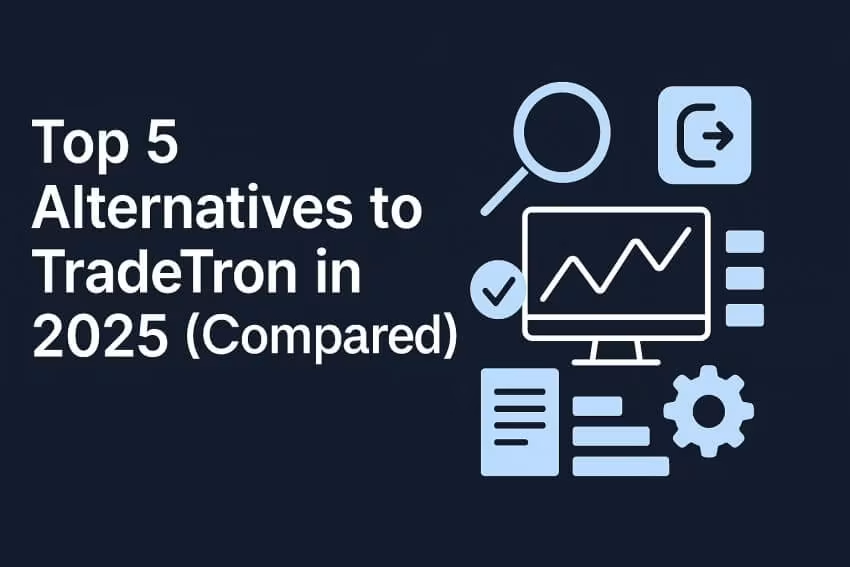What is Automated Algorithmic Trading?
Automated algo trading, is a method of executing trades in financial markets by using computer programs to follow a predefined set of rules or algorithms. This approach is in contrast to manual trading, where a trader executes trades based on their judgement and analysis. Algo trading, when done right, can provide significant advantages, such as speed, precision, and reduced emotional biases.In algo trading, algorithms are designed to make trading decisions based on various factors, including price movements, technical indicators, market sentiment, and economic data. These algorithms can be as simple or as complex as the trader wishes, and they are typically developed in programming languages like Python, C++, or Java.
Benefits of Algorithmic Trading Software
Algorithmic trading software offers a suite of advantages.
- Lightning-Fast Execution: It enables rapid trade execution, which is vital in volatile markets where timing is critical.
- Emotion-Free Trading: It eliminates emotional bias by following predetermined rules and parameters, preventing fear and greed from affecting decisions.
- Backtesting and Optimisation: Traders can fine-tune strategies by simulating them with historical data, enhancing performance before real market deployment.
- Enhanced Risk Management: Automation allows for the implementation of stop-loss orders and risk controls, prioritising capital preservation.
- Efficient Multimarket Monitoring: Traders can simultaneously monitor and trade across multiple markets and instruments, saving time and optimising profit potential.
- Improved Trading Efficiency: Algorithmic trading software combines speed, precision, objectivity, and risk management to enhance a trader's success in fast-paced financial markets.
History of Algorithmic Trading in India
SEBI (Securities and Exchange Board of India) ushered in algorithmic trading in India on 3 April 2008.
- This introduction was facilitated through the Direct Market Access (DMA) facility, initially limited to institutions.
- DMA allowed institutions to share technological infrastructure with their clients, providing direct access to exchange trading systems. This access empowered traders to utilise algorithms for trade execution, reducing trading costs significantly.
- While initially limited to institutions, this privilege eventually extended to retail investors, broadening participation in algo trading.
Algorithmic Trading Practices in India
Algorithmic trading practices in India have seen substantial growth and evolution in recent years. These practices encompass various aspects and strategies.
- Smart Order Routing: DMA paved the way for smart order routing, a process that leverages algorithms to execute the best orders across various exchanges, enhancing trade efficiency.
- High-Frequency Trading (HFT): High-frequency trading, characterised by ultra-fast trading on small timescales (milliseconds to nanoseconds), became prevalent with algorithmic trading.
- Co-location Services: Algorithmic trading led to the introduction of co-location services, enabling members to place their servers on stock exchange premises, facilitating high-frequency trading.
- Algorithmic Trading Strategies: Algorithmic trading strategies in India span a wide range of approaches, including statistical arbitrage, market making, trend following, and mean reversion strategies. These strategies are often implemented using custom algorithms designed to capitalise on specific market conditions.
- Algorithmic Trading for Retail Investors: While algorithmic trading was initially dominated by institutions in India, it has gradually become accessible to retail investors. This expansion of access allows individual traders to employ algorithmic strategies, automating their trading and enhancing their efficiency in the market.
- Regulatory Compliance: Algorithmic trading in India is subject to regulatory compliance set forth by SEBI. Traders and firms engaging in algorithmic trading must adhere to specific rules and regulations to ensure market integrity and investor protection.
NSE's Initiatives in India to Foster Algo Trading
The NSE has been a driving force behind the promotion of algo trading in the country. In pursuit of its objectives to enhance market efficiency and liquidity, it has introduced several initiatives to encourage algorithmic trading among market participants.
Co-location Services
One of the primary initiatives introduced by it is the provision of co-location services. This service allows traders to position their servers close to the exchange's matching engine, resulting in reduced latency and enhanced execution speed. By offering co-location services, the NSE ensures equitable access to trade execution for all market participants, irrespective of their physical location.
NEAT on Web
In addition to co-location services, the NSE has established comprehensive guidelines for algo trading in India, through its platform known as ‘NEAT on Web’ (NOW). The NOW framework empowers traders to execute orders using customised algorithms while adhering to risk management controls defined by the exchange. This framework serves as a means to promote transparency and accountability in algorithmic trading activities, bolstering confidence in the market.
Training Programs
Furthermore, the NSE actively conducts workshops and training programs, aimed at educating and equipping market participants who are interested in algorithmic trading. These educational initiatives are instrumental in helping individuals comprehend the intricacies of designing effective trading strategies and managing the associated risks in the realm of algo trading.Collectively, through these multifaceted measures, the NSE has cultivated an environment that is conducive to algo trading in India. This has not only spurred innovation in the trading landscape but has also attracted a diverse range of market players, including institutional investors and retail traders, looking to leverage the advantages of algorithmic trading.
Regulations on Algorithmic Trading in India
Regulations on algorithmic trading in India are instituted and enforced by the SEBI, the country's regulatory authority for securities markets. These regulations are essential for maintaining market integrity and safeguarding the interests of investors.
- Audit Requirements: Algo trading firms must undergo half-yearly audits conducted by approved auditors.
- Order Execution Regulations: Compliance with SEBI's regulations on order execution is essential.
- Commodity Market Regulations: Additional regulations must be followed when trading with algorithms in the commodity market.
- Efficiency and Fair Play: There will not be approval of algorithms that might hinder efficient price discovery or fair play in the market. Also, a robust surveillance system will need to be maintained to verify the usage of exclusively sanctioned algorithmic strategies.
- Liquidity-Oriented Algorithms: Algorithms that deplete market liquidity are not approved. Also, algorithmic trading in mini and micro contracts should be approached with caution, ensuring it doesn't disadvantage small participants.
- Risk Controls: SEBI has introduced risk control mechanisms for algorithmic trading, including mechanisms for identifying and preventing erroneous orders.
- Routing Through Member Servers: All algorithmic orders must be routed exclusively through member servers within India. No interlinks with systems or IDs outside India are allowed.
Some Well-known Algo Trading Interfaces in India
Algorithmic trading software has ushered in a transformative era for traders in the Indian stock market. With the automation and precision offered by advanced algorithms, traders can execute lightning-fast transactions while sidestepping the pitfalls of human error and emotion. If you're on the lookout for the finest algo trading software options in India, here are some choices for you
- Zerodha Streak: Has a user-friendly interface and empowers users to craft personalised trading strategies with ease.
- Upstox Algo Lab: It has an array of pre-built strategies and an intuitive interface, making it suitable for both novices and experts.
- Symphony Presto: It offers a suite of tools for algorithmic trading enthusiasts.
- uTrade Algos: Provides tools to plan, strategise, and automate trades and subscribe to expert-backed pre-made algos.
- Omnesys NEST Trader: Provides advanced charting capabilities and real-time data analysis features.
The future of algorithmic trading in India is underpinned by the dual forces of increasing accessibility and advancing technology. As more market players embrace algorithmic trading, it is poised to play an increasingly pivotal role in shaping the dynamics of India's financial markets. If you are looking for a platform where you can generate comprehensive reports, check how your strategy logic would have performed in the past using accurate historical data, or analyse your plans via interactive graphs, check out the uTrade Algos platform today.












